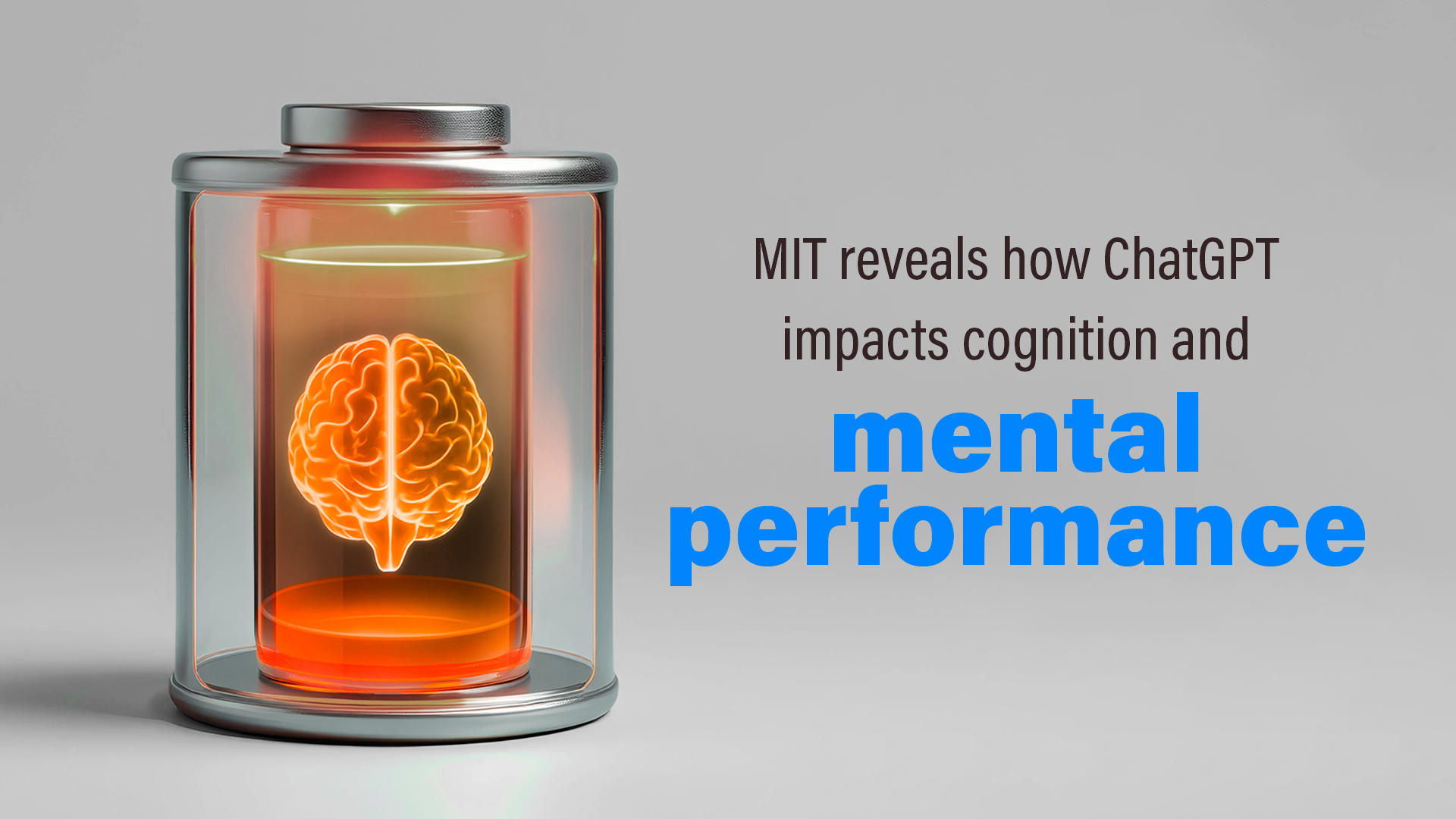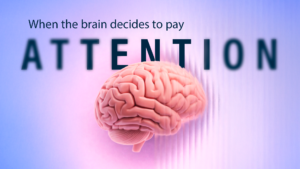
Is AI Making You Mentally Lazy? A Professional Take on MIT’s “Your Brain on ChatGPT” Findings
In June 2025, the MIT Media Lab published a groundbreaking study on MIT ChatGPT brain effects, titled “Your Brain on ChatGPT: Accumulation of Cognitive Debt when Using an AI Assistant for Essay Writing Task”. This research explores how AI-assisted writing influences brain activity, creativity, and memory—critical skills for professionals in high-performance environments.
This article presents the key findings, explores their implications for professional environments, and offers strategic recommendations to harness AI tools like ChatGPT without sacrificing cognitive performance or intellectual independence.
The findings on MIT ChatGPT brain effects suggest that while AI tools can enhance short-term productivity, they may also lower neural engagement in areas related to memory and critical thinking.
Study Design: How the Research Was Conducted
- Participants: 54 individuals divided into three experimental cohorts:
- Brain‑only (no tools)
- Search Engine (Google or similar)
- LLM/ChatGPT (AI assistance)
- The experiment involved three writing sessions under identical conditions, followed by a fourth session where groups were switched: LLM→Brain-only and Brain-only→LLM.
- Data Collected:
- EEG measurements focusing on neural connectivity (alpha and beta bands)
- Linguistic analysis: entity recognition, n‑gram patterns, topic homogeneity
- Machine and human evaluations of writing quality
- Self-reported sense of authorship and engagement
Key Findings
- Reduced Neural Activation with ChatGPT
Participants who used ChatGPT displayed weaker neural connectivity, particularly in regions associated with memory, analytical thinking, and creativity (researchgate.net, nature.com). - Higher Textual Homogeneity
Essays generated with ChatGPT were noticeably less original, showing recurring patterns and structural similarities that made them easier to detect by evaluators. - Lower Retention and Sense of Ownership
Participants using ChatGPT had difficulty recalling their text and reported a weaker personal connection to what they had written. - Carryover Effects in Cross-Group Sessions
- Those who switched from ChatGPT to Brain-only exhibited diminished neural activity, suggesting a form of “cognitive offloading.”
- Conversely, those moving from Brain-only to ChatGPT showed heightened engagement, similar to the Search Engine group—indicating that prior autonomous effort can improve AI integration.
Why This Matters to Professionals and Organizations
- Productivity vs. Cognitive Engagement
While ChatGPT offers short-term efficiency, the study suggests it may undermine long-term analytical depth, retention, and creative thinking. - Learning and Knowledge Construction
Critical thinking is fundamental to leadership, consulting, and training. Over-reliance on AI can erode the foundation of internal knowledge and original insight. - Instructional Design and Corporate Training
Organizations must design learning experiences that blend human effort with intelligent assistance, rather than replacing the thinking process entirely. - Risk of Bias and Generic Output
Homogeneous, less-personal content increases exposure to algorithmic biases and reduces the authenticity of personal or corporate branding.
Strategic Recommendations for Professionals
- Use AI Tools Strategically, Not Automatically
Start high-level thinking tasks independently. Use ChatGPT for refinement, brainstorming, or final review, not as a replacement for cognitive initiation. - Train for Critical AI Use
Equip teams to evaluate, challenge, and compare AI-generated outputs. This reinforces judgment, not dependency. - Promote Awareness of Cognitive Debt
Share this research with employees to develop a culture of intentional, informed AI use. - Establish Ethical AI Usage Policies
Define clear rules on when and how AI tools like ChatGPT should be used—preserving authorship, originality, and depth. - Monitor Cognitive and Creative Impact
Regularly assess knowledge retention, problem-solving ability, and content originality in environments where ChatGPT is frequently used.
ChatGPT in the Workplace: Strengths and Limitations
- Benefits:
- Accelerates routine writing and ideation
- Provides scaffolding for drafts and structure
- Supports language refinement and clarity
- Risks:
- Diminished cognitive engagement
- Lower retention and personal investment
- Overly generic, templated outputs
- Balance is Key:
For professionals engaged in creative, strategic, or analytical tasks, ChatGPT should remain a secondary support tool, not the foundation of cognitive work.
Final Thoughts: Should Professionals Use ChatGPT?
The MIT study introduces the notion of cognitive debt—the subtle yet cumulative toll on mental performance when AI replaces deep thinking. Though still a preliminary preprint, the research delivers valuable insights into how over-reliance on AI may dull intellectual rigor and memory.
Professionals should treat tools like ChatGPT as co-pilots: highly useful, but only when the destination and map are already internally constructed. Whether in executive training, consulting, or strategic planning, starting with your own cognition and then supplementing with AI ensures maximum engagement, retention, and innovation.
Failing to do so may result in teams that appear productive but lack the critical capacity to lead, adapt, or solve novel challenges in the long run.
Ultimately, understanding MIT ChatGPT brain effects allows professionals to create strategies that balance AI efficiency with cognitive engagement, ensuring long-term innovation and decision-making capacity.
Kosmyna, N., & Picard, R. W. (2025). Your brain on ChatGPT: Accumulation of cognitive debt when using an AI assistant for essay writing task [Preprint]. arXiv. https://arxiv.org/abs/2506.08872
Continue reading more articles: https://neurobusiness.us/blog/


